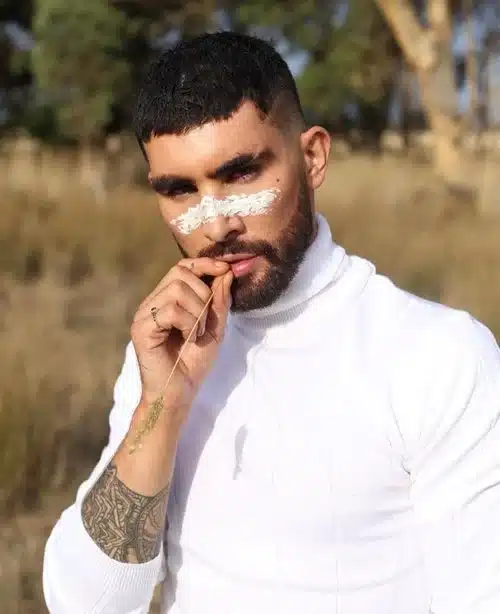RANZCOG welcomes Jony Berry
Introducing Jony Berry, proud Palawa person, to the role of Aboriginal and Torres Strait Islander Health Advisor.
RANZCOG welcomes Jony Berry to the role of Aboriginal and Torres Strait Islander Health Advisor.
Jony is a proud Palawa person and says joining the College “is such an amazing opportunity”.
I am excited to have the platform to be able to advocate and educate, and help shape the minds of non-Indigenous Australia,” Jony says. “It is such an incredible opportunity.””
Jony comes to RANZCOG following roles as a First Nations engagement lead, cultural activist and patient liaison officer in the medical sector. Jony was the Aboriginal health practitioner for Western Health in Melbourne, and has worked within women’s maternal health and been involved in developing and consulting organisations with building reconciliation action plans and cultural safety programs.
The RANZCOG Strategic Plan 2022–2024 outlines the College’s objective to “strengthen relationships with Aboriginal and Torres Strait Islander and Māori organisations to support health equity for women”. The Plan also identifies RANZCOG’s commitment “to Aboriginal and Torres Strait Islander health through increasing Aboriginal and Torres Strait Islander workforce (members and staff), teaching culturally appropriate obstetric and gynaecological care, and the review and implementation of the Reconciliation Action Plan”.
Jony, who was first Aboriginal person to represent Australia in Mr World, will coordinate and provide administrative support to the College’s Aboriginal and Torres Strait Islander Women’s Health Committee and Reconciliation Action Plan (RAP) Working Group, collaborating and seeking member feedback and expertise with projects such as the RAP.
My main goal while at the College is to bridge the gap around the lack of cultural education and understanding and cultural knowledge within the health sector, for our Aboriginal women and our bubs,” Jony says.
“Breaking down the systematic stereotypes of western medicine and western practice to allow for it to be inclusive of Aboriginal and Torres Strait Islander women, and of our rich cultural heritage and the rich cultural knowledge and the birthing practices that have been passed down for hundreds of thousands of years; to be able to create a safe place for Aboriginal women and a safe place for education and knowledge, and to be able to help educate them in ways they haven’t been able to receive in the past,” Jony adds.
